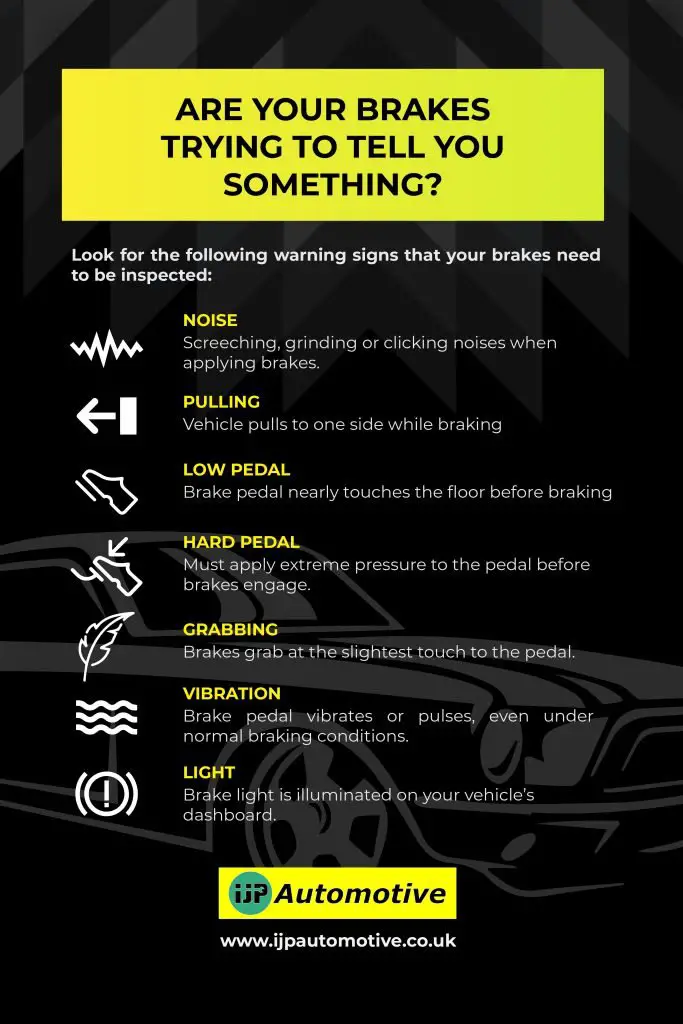If your brakes are trying to tell you something, you should pay attention. Knowing the warning signs that your brakes need maintenance is essential to keep you safe on the road. A properly operating brake system helps ensure safe vehicle control and operation and it should be checked immediately if you suspect any problems.
While an annual brake inspection is a good way to ensure brake safety, motorists should not ignore signs that their brakes need attention. If you experience these signs, then your brakes are telling you that they need to be inspected!

FAQs
Some common brake problems include worn brake pads, brake fluid leaks, warped brake rotors, sticking brake calipers, strange brake noises, anti-lock braking system malfunction, and a soft brake pedal. If you encounter any of these issues or suspect a problem with your brakes, it is recommended to have your vehicle inspected by a qualified mechanic or brake specialist to diagnose and resolve the problem.
If your brake pads are worn beyond their recommended thickness, it can result in longer stopping distances and reduced braking power. If there is a brake fluid leak due to damaged brake lines, calipers, or wheel cylinders, it can lead to a loss of hydraulic pressure, resulting in a spongy brake pedal and reduced braking ability. If a brake caliper is sticking or failing to release properly, it can cause uneven braking, excessive wear on the brake pads, and reduced stopping power. Brake rotors can become warped due to excessive heat buildup or aggressive braking. Brake pads or rotors can become contaminated with oil, grease, or debris, which can reduce their ability to generate friction and cause difficulty in braking effectively. A faulty ABS sensor, control module, or hydraulic issue can result in improper operation of the ABS, leading to braking troubles. Insufficient brake fluid in the master cylinder reservoir can result in inadequate hydraulic pressure, causing difficulty in applying the brakes effectively.
If you suspect or experience any brake-related issues, it is strongly recommended to address them immediately by having your vehicle inspected and repaired by a qualified mechanic or brake specialist. Prioritising the safety of yourself and others on the road is crucial, and maintaining fully functional brakes is essential for safe driving.

